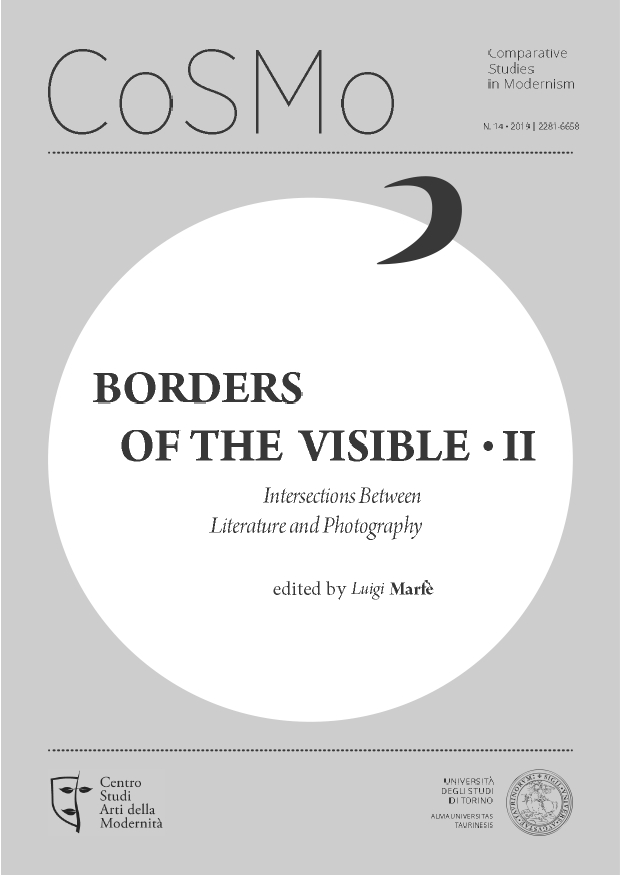Affective Images: The Transformative Power of Photography in Siri Hustvedt’s “The Blindfold”
DOI:
https://doi.org/10.13135/2281-6658/3451Parole chiave:
Photograph, Novel, Narrative, Image, Fake NewsAbstract
Siri Hustvedt’s The Blindfold is a novel in which photography, or to be more specific, a photograph, seems to have the power to shape, obfuscate, and frame narrative. In what is primarily a close reading of the book, this paper will highlight the ways in which a photographic portrait alienates, emulates, and finally embodies its subject, the protagonist Iris Vegan. In maintaining a focused textual analysis, this paper is ultimately able to excavate the photograph’s role in the novel, with particular regard to narrative, temporarily, and subjectivity. Central to my argument is that the photographic portrait becomes a character it its own right. An antagonist and copy of Iris, which, through its photographic properties, seems to supersede Iris’s sociality, health, and reality. Following the close reading, the paper concludes in a more reflexive tone as it asks and answers what The Blindfold’s affective portrait could mean for our own contemporary moment of proliferate and instant photographic social media, dubious provenance, and “fake” news.Downloads
I dati di download non sono ancora disponibili.
##submission.downloads##
Pubblicato
2019-06-28
Fascicolo
Sezione
Percorsi
Licenza
Gli autori mantengono i diritti sulla loro opera e cedono alla rivista il diritto di prima pubblicazione dell'opera, contemporaneamente licenziata sotto una Licenza Creative Commons - Attribuzione che permette ad altri di condividere l'opera indicando la paternità intellettuale e la prima pubblicazione su questa rivista.







